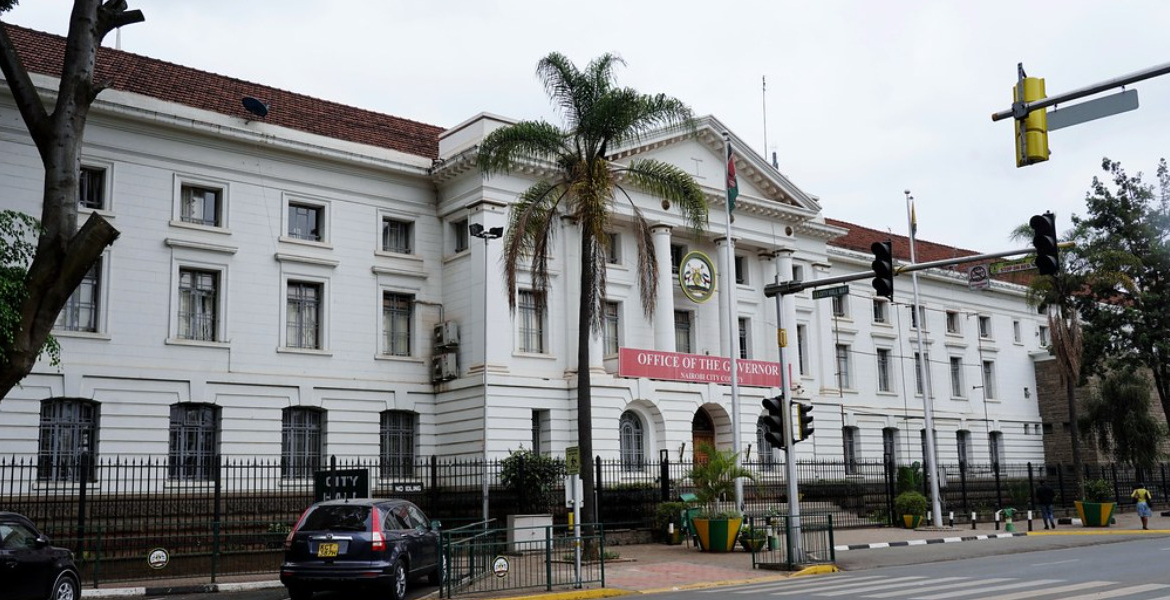Nairobi Landlords Face Auctions as Sakaja Moves to Recover Ksh10 Billion in Unpaid Rates

The Nairobi County Government is set to initiate a comprehensive crackdown on land rate defaulters starting Monday, May 11, following the expiration of a grace period for landowners to settle outstanding dues.
Governor Johnson Sakaja has announced the deployment of enforcement teams across the county's sub-counties to ensure compliance. This action comes in response to a significant revenue shortfall in recent years, primarily attributed to widespread non-payment of land rates. County officials estimate that only 20 per cent of registered landowners consistently meet their financial obligations, resulting in a substantial financial gap that impedes the local government's capacity to deliver essential services.
Tiras Njoroge, the county's receiver of revenue, has outlined the phased approach of the enforcement campaign. Initially, the focus will be on areas with high concentrations of commercial properties, including Westlands, Upper Hill, Kilimani, and the Industrial Area, which collectively account for a significant portion of the outstanding land rate arrears. Subsequently, the crackdown will extend to residential estates, ensuring that all landowners who failed to comply with the April 30 deadline are held accountable.
The enforcement measures will include property clamping, issuance of notices to defaulters, and the initiation of legal proceedings against persistent offenders. To enhance transparency and encourage compliance, the county government is also considering the public disclosure of the names of delinquent landowners. The Nairobi County Government aims to recover over Ksh10 billion in unpaid land rates.
Officials emphasise that these funds are critical for financing essential citywide improvements, including enhanced waste management, improved healthcare services, and much-needed road maintenance. Governor Sakaja expresses his frustration with the low compliance rate, emphasising that the county had provided ample opportunity for defaulters to regularise their accounts before penalties took effect.
He says, "We understand that times are tough, which is why the waiver period was extended. However, for some, no amount of leniency seems to be enough. We now have no choice but to act."
In addition to the immediate enforcement measures, Nairobi landowners will face a revised land rate system based on property size and value, effective January 1, 2025. The new structure will range between Sh2,560 and Sh4,800 annually, with residential, commercial, and agricultural properties taxed at 0.115 per cent of their assessed value. Patrick Mbogo, the county’s Executive for Built Environment and Urban Planning, details the updated tax structure in a gazette notice issued late last year.
The changes are designed to align land rates with current property values, ensuring a fairer and more transparent revenue collection system. Under the new framework, landowners with properties under 0.1 hectares will pay Sh2,560 per year, while those with plots ranging from 0.1 to 0.2 hectares will be charged Sh3,200. Larger parcels, spanning between 0.2 and 0.4 hectares, will incur Sh4,000, while those exceeding 0.4 hectares will pay Sh4,800 annually.
Recognising the potential for valuation discrepancies, the county government has introduced provisions to prevent excessive financial burdens on landowners. If the new rates are lower than those imposed in 2022, property owners will continue paying the 2022 rates. Conversely, if the updated taxes exceed double the 2022 figures, landlords will only pay twice their previous rate. A Valuation Court has been established to resolve objections from landowners who dispute their new tax assessments.
Affected individuals will continue paying the older rates until their cases are determined. The county has also mandated sectional title holders to open individual rates accounts and advised landowners with unvalued or omitted properties to consult the Chief Valuer at City Hall for appropriate classification. Land rates represent Nairobi’s most significant source of locally generated revenue, accounting for about 25 per cent of the county’s total collections.
Other revenue streams include parking fees, single business permits, building permits, house rents, and billboard advertising, collectively comprising 80 per cent of the city’s financial inflows. The county government has implemented various measures over the years to ease financial burdens on residents. These include periodic rent waivers for occupants of county-owned houses in areas such as Maringo, Uhuru, Kaloleni, Jericho, Buruburu, Kariobangi South, Ziwani, and Jerusalem.
These homes, numbering approximately 17,000, are rented at rates ranging from Sh2,000 to Sh20,000 per month, depending on location. These waivers are required to be reported to the County Assembly and published in a gazette notice within 14 days of issuance, in accordance with the Nairobi City County Waiver Administration Act of 2013. However, these concessions can contribute to revenue losses if not effectively managed.
As Nairobi intensifies its collection efforts, the county government underscores that financial discipline is essential for the city’s sustainable development. Officials emphasise that consistent revenue generation is vital to providing essential services and infrastructure improvements, preventing reliance on external funding or debt accumulation.
Governor Sakaja reiterated the county’s commitment to enforcing compliance, emphasising that responsible landowners should not bear the financial burden of defaulters. He states, "We want everyone to contribute their fair share. Those who have been paying should not carry the load for the rest."
The county has urged residents to check their land rate status through the Nairobi revenue portal and clear any arrears before enforcement actions commence. The launch of this county-wide crackdown underscores Nairobi’s determination to restore financial accountability among landowners. While the new policies and enforcement measures may face resistance from defaulters, officials maintain that these efforts are necessary for the city’s continued growth and service delivery.
With land rate evasion contributing to substantial revenue losses, the county hopes that stricter compliance will lead to a more sustainable financial system.








Add new comment